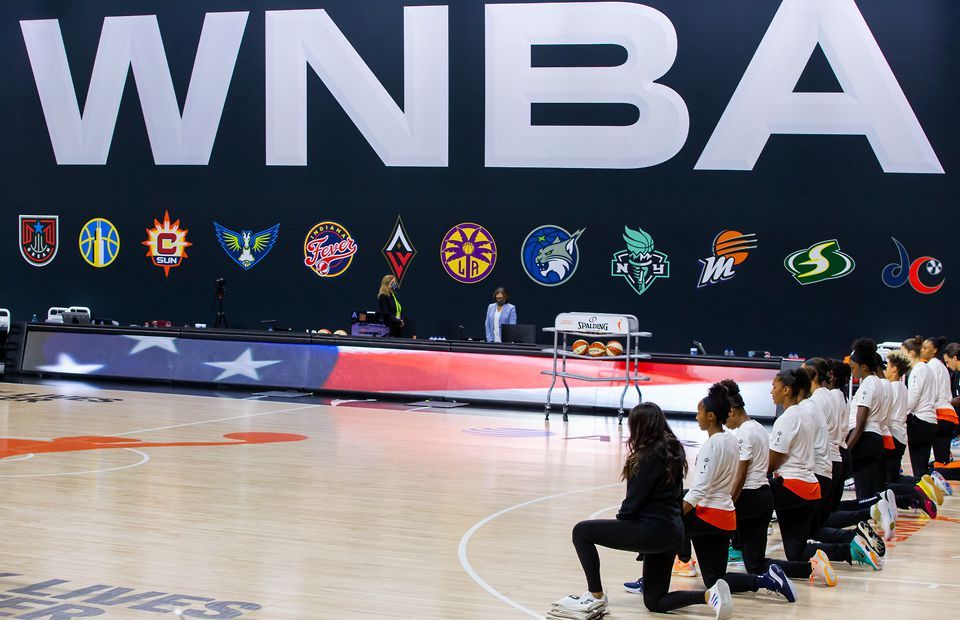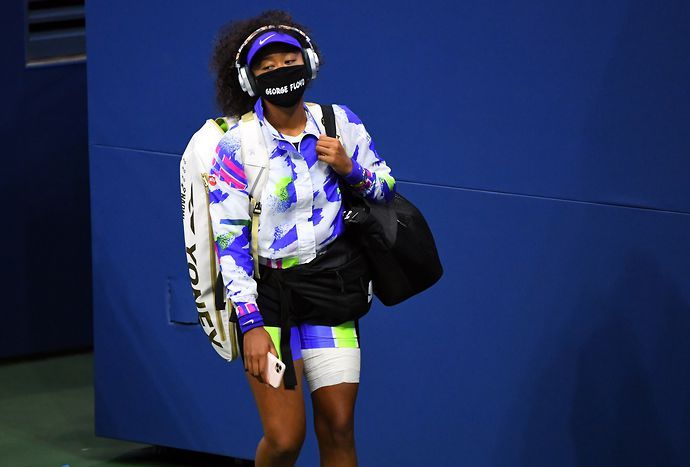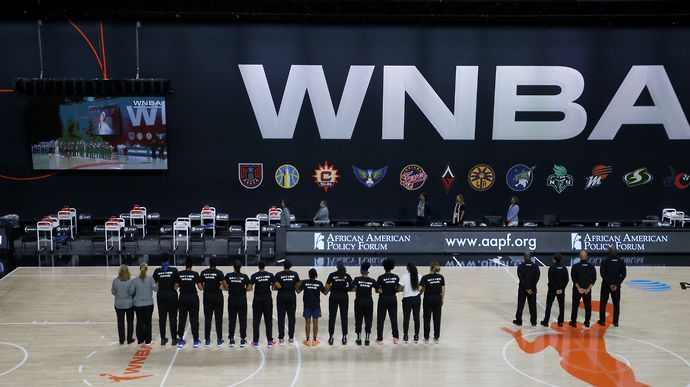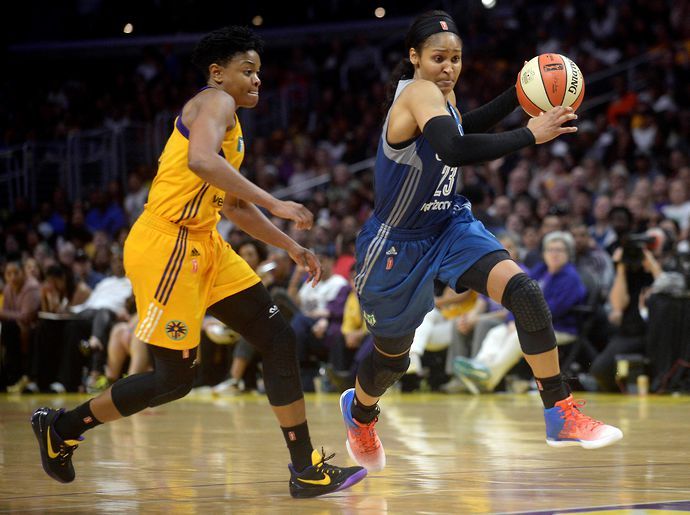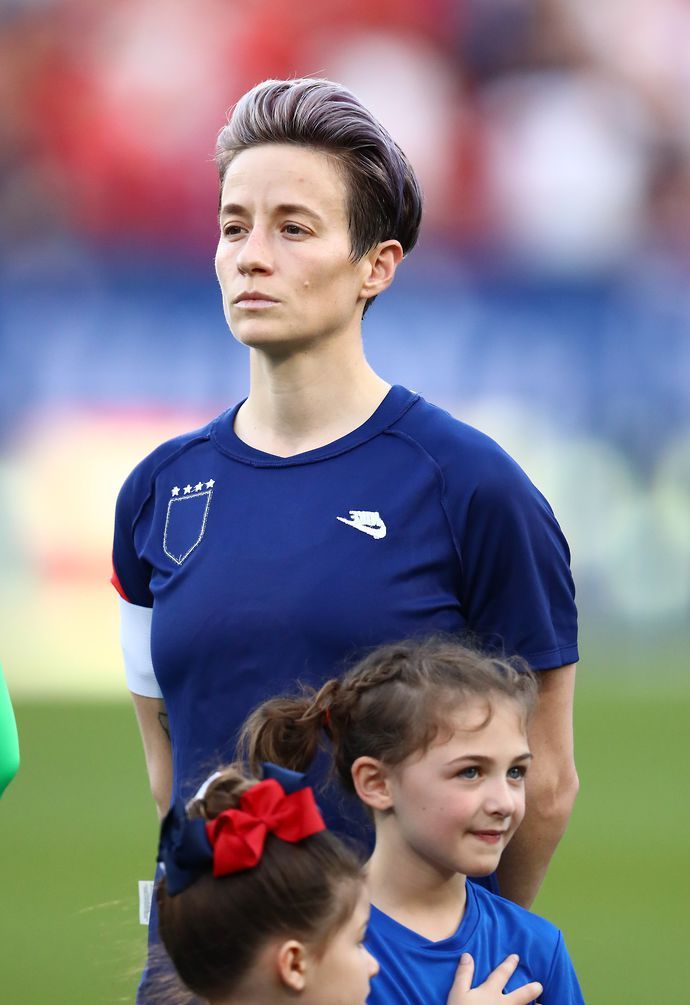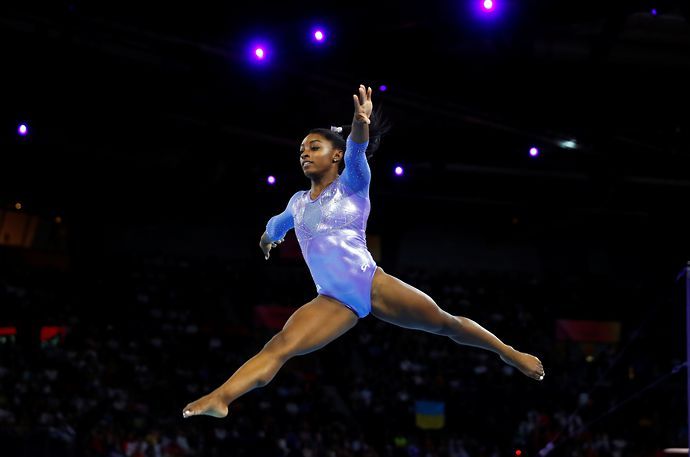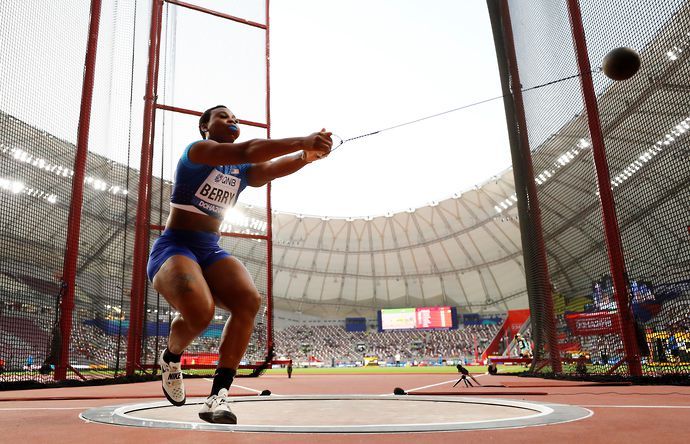Despite sustained pressure to relax Rule 50 – which prohibits athletes from staging podium protests at the Olympic Games – the International Olympic Committee has confirmed the regulation will be kept in place for Tokyo 2020.Athletes will still be able to share their views during press conferences, but will not be able to demonstrate on the podium, on the field of play, or during the Opening and Closing Ceremonies.The ban on protests is likely to be at odds with numerous athletes who use their platform to speak out on social issues, including racism, sexism, homophobia and abuse in sport. GMSw have selected six female athletes who are now synonymous with social activism.
Naomi Osaka
Osaka is currently one of the most influential sportswomen around and she is certainly putting her platform to good use.
The four-time Grand Slam winner has been a vocal proponent of Black Lives Matter, demonstrating her support for the movement during last year’s US Open. Before each match, Osaka entered the Arthur Ashe Stadium wearing a facemask bearing the name of a victim of racism and police brutality in the United States.
As her run in the tournament was a winning one, Osaka had the opportunity to wear seven different masks in total. She revealed she wore the masks to “make people start talking". Her actions came after a summer dominated by Black Lives Matter protests across the world, and she did indeed keep the conversation going.
Osaka most recently spoke out after Derek Chauvin was found guilty of murdering George Floyd this week. The death of Floyd had sparked the waves of protests around the world last year.
“I was going to make a celebratory tweet but then I was hit with sadness because we are celebrating something that is clear as day. The fact that so many injustices occurred to make us hold our breath toward this outcome is really telling,” she said.
WNBA players
In August 2016, Colin Kaepernick made headlines when he refused to stand during the American national anthem at a pre-season game for the NFL team San Francisco 49ers.
An image of Kaepernick kneeling is now synonymous with the Black Lives Matter movement, but his actions came a month after WNBA players began to collectively speak out on racial injustice.
In July 2016, four Minnesota Lynx players – all donning black t-shirts printed with “Change Starts With Us: Justice & Accountability” – held a press conference to discuss police brutality and the killings of Philando Castile and Alton Sterling.
Similar protests continued in the following months, including at a match between Indiana Fever and Phoenix Mercury. Players linked arms and knelt during the US national anthem.
Since then, WNBA players have continued to advocate for socially progressive causes. They dedicated the 2020 season to social justice, with Minnesota Lynx star Maya Moore even taking a step back from her playing career to focus on reforming the American justice system.
WNBA players also joined their NBA counterparts in refusing to play a number of matches last August, choosing instead to protest the police shooting of Jacob Blake.
Megan Rapinoe
The pink-haired footballer is known for being an outspoken advocate for LGBTQ+ rights, Black Lives Matter and the battle for equal pay in sport. She claims her memoir One Life, released last November, is a call to "fight for justice and equality".
In the book, Rapinoe details her journey to becoming an activist, and discusses her decision to start taking a knee in 2016 in support of Colin Kaepernick. Despite initially feeling her international career was in jeopardy after staging the protest, Rapinoe has since been celebrated for her actions on and off the pitch.
Rapinoe has also spoken out about the need to have LGBTQ+ role models in sport, crediting this as her reason for publicly coming out in 2012.
“If you’re a prominent athlete, coming out isn’t for yourself but for others,” Rapinoe said in One Life. Until everyone can come out without it being a big deal, nobody gets to ‘just’ live their lives. And the more people who come out, the more we break down the stereotypes of what it is to be gay.”
Simone Biles
Biles is not only the most decorated American gymnast in history, but also a powerful woman who is not afraid to speak out about injustice.
She has previously discussed her experiences of racism and sexism in sport, but has also been crucial in holding USA Gymnastics to account following the Larry Nassar sexual abuse scandal. Biles was one of hundreds of gymnasts abused by Nassar, a former doctor for USA Gymnastics.
Nassar has since been imprisoned for life, but Biles has repeatedly criticised USA Gymnastics for failing to prevent the abuse from taking place, and for since failing to launch an independent investigation into the scandal.
With Biles one of the most influential American athletes around, her voice is incredibly important for sexual abuse survivors everywhere.
Pernille Harder and Magdalena Eriksson
A photograph of Pernille Harder and Magdalena Eriksson kissing at the 2019 FIFA World Cup quickly went viral around the world. The couple, now both playing for Chelsea, soon became LGBTQ+ icons, and they have certainly put this status to good use.
Shortly after the World Cup, Harder and Eriksson signed up to Common Goal’s Play Proud scheme. This sees professional athletes donate one percent of their salaries to an initiative which aims to train coaches to guide and mentor LGBTQ+ athletes.
This Valentine’s Day, the pair opened up their Twitter accounts to offer advice to people struggling with their sexuality.
“In fact, the messages of appreciation we got from people thanking us were quite inspiring for me,” Eriksson wrote for the i shortly afterwards. “When people tell you how much it means to see me and Pernille being open and being ourselves, it showed the help we can give as role models.”
Gwen Berry
Berry defied the United States Olympic and Paralympic Committee in July 2019 when she raised a clenched fist while on the podium at the Pan American Games in Lima.
She had just won a gold medal in the hammer throw, and chose to spend her moment of glory protesting about racial injustice in the US. Despite the importance of her actions, Berry and American fencer Race Imboden – who had knelt on the podium the day before – were placed on a 12-month probation by USOPC.
Following the Black Lives Matter protests last year, Berry received an apology from USOPC chief executive Sarah Hirshland. Berry claimed the backlash from her protest nearly resulted in the end of her career, but revealed to the Washington Post that her activism was still worthwhile.
“If anything, I feel even more proud,” she said. “I feel like it’s been a long time coming. I feel like now more athletes are speaking out and saying things. It doesn’t get any better than this, moving forward with more people speaking out. More people are showing their solidarity with Black people and appreciating us. I wouldn’t take it back at all.”















